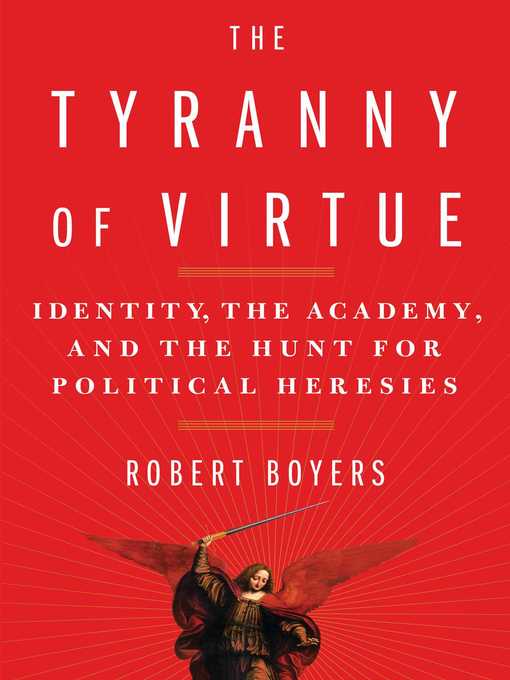
The Tyranny of Virtue
Identity, the Academy, and the Hunt for Political Heresies
کتاب های مرتبط
- اطلاعات
- نقد و بررسی
- دیدگاه کاربران
نقد و بررسی

July 15, 2019
A rousing call for speech on college campuses that is truly free, addressing uncomfortable issues while allowing room for dissent. The habit of thinking clearly about big-picture issues of politics, philosophy, ethics, identity, and other realms, the very stuff of liberal discourse, is "virtually impossible for a great many people in academic life." So writes Salmagundi editor Boyers (English/Skidmore Coll.; The Fate of Ideas: Seductions, Betrayals, Appraisals, 2015, etc.) in this bracing--and, at turns, eminently arguable--defense of norms of free inquiry against aggrieved identity politics. He's pretty woke, a student told him, for "an old white guy like you." Old white guys have feelings, too--and histories that embrace centuries of struggle and survival that don't often figure in the modern narrative. Boyers begins by examining the modern notion of privilege, recalling what would probably have been an actionable case today of one of his own professors who advised him to lose his Brooklyn accent lest he not be taken seriously. Privilege, as in white privilege, is a real thing, at least of a kind, he allows: That professor would be hauled up today for classism and put through sensitivity training, but the very idea of white privilege is now a "formula resistant to meaningful conversations, which fuels insupportable assumptions and resentments." Boyers cites cases: a student who cannot believe that Nadine Gordimer, the South African writer, can speak with any authority of the lives of black South Africans; the novelist Viet Tranh Nguyen, whose article on the supposed hostility of writers' workshops to people of color rouses Boyers' vigorous objections. Coming from a clearly liberal point of view, Boyers nonetheless courts controversy--and is bound to get it--with some of his tenets, such as the thought that identity politics as such evinces "a fear of the uncertainties and hard choices that come with modernity and the need to think." A nuanced argument of interest to those who worry that nuanced arguments are no longer possible in quad or classroom.
COPYRIGHT(2019) Kirkus Reviews, ALL RIGHTS RESERVED.

August 9, 2019
This collection of essays by Boyers (English, Skidmore Coll.; editor, Salmagundi) strikes many familiar chords in the liberal case against the politics of identity: fears about institutionally mandated conformity, fears about the limits of identity-based community and collective action, and fears that censorship and self-censorship will circumscribe free speech and thought. Drawn from his private liberal arts college world, Boyers's examples make clear his unwillingness or inability to decenter his lived experience to grapple with the realities of violence and exclusion that lead people to fight for social change. He repeatedly describes those with whom he disagrees as "offended" by certain ideas, words, or practices, as if they are unpleasant odors rather than part of coherent, historically documented systems of oppression. Boyers assumes--most strikingly in the preface--that readers will share his perspective (one might say identity), such as his shock when a racist mistake disqualifies a white male job candidate, his disappointment when female students critique assigned readings through the lens of misogyny, or his skepticism when his son and son-in-law attempt to explain what it's like to be gay in a heteronormative world. VERDICT This work will resonate with liberals dismayed by the notion of structural or systemic oppression but falls short of making a persuasive case that the struggle for equity, diversity, and inclusion within academe is in danger of tyrannical overreach.--Anna J. Clutterbuck-Cook, Massachusetts Historical Soc., Boston
Copyright 2019 Library Journal, LLC Used with permission.

























دیدگاه کاربران